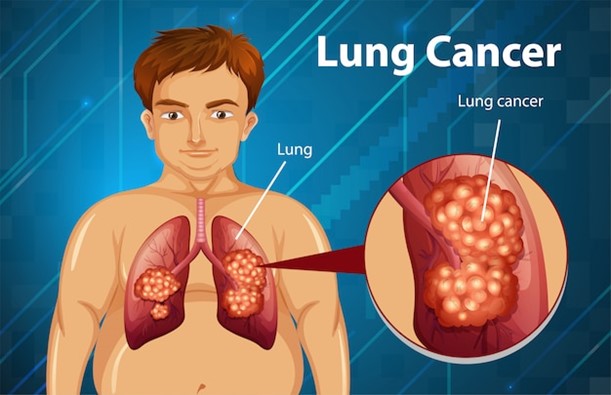Lung cancer is a significant health concern worldwide, including South Africa. It is crucial for South African women to be aware of the risk factors associated with lung cancer and take proactive steps to prevent and manage this potentially deadly disease. In this article, we will discuss essential advice for South African women to help prevent and manage lung cancer effectively.
- Say No to Tobacco: The most significant risk factor for lung cancer is smoking. South African women should avoid tobacco in any form, including cigarettes, pipes, cigars, and smokeless tobacco. If you are a smoker, quitting is the best decision you can make for your health. Seek support from healthcare professionals, join smoking cessation programs, and consider nicotine replacement therapy or other medication options to increase your chances of successfully quitting.
- Avoid Secondhand Smoke: Exposure to secondhand smoke is also a significant risk factor for lung cancer. Even if you don’t smoke, being around others who do puts you at risk. Encourage a smoke-free environment at home, in public spaces, and in the workplace. Support smoking bans and educate others about the dangers of secondhand smoke.
- Protect Against Radon: Radon is a naturally occurring radioactive gas that can seep into buildings, including homes, and increase the risk of lung cancer. Have your home tested for radon, especially if you live in areas known to have high radon levels. If elevated levels are detected, take steps to reduce radon exposure by sealing cracks, improving ventilation, or considering professional radon mitigation services.
- Promote Clean Air: Air pollution, both outdoor and indoor, is a known risk factor for lung cancer. Take measures to reduce exposure to pollutants by avoiding heavily congested areas, using air purifiers at home, and minimizing exposure to indoor pollutants such as dust, mold, and harsh chemicals.
- Healthy Lifestyle Choices: Maintaining a healthy lifestyle can significantly reduce the risk of developing lung cancer. Focus on eating a nutritious diet that includes plenty of fruits, vegetables, whole grains, and lean proteins. Regular physical activity can also contribute to overall health and reduce the risk of cancer. Aim for at least 150 minutes of moderate-intensity exercise per week.
- Early Detection and Screening: Early detection is crucial for effective lung cancer management. South African women who are at high risk, such as smokers or those with a family history of lung cancer, should discuss lung cancer screening with their healthcare provider. Screening tests like low-dose computed tomography (CT) scans can detect lung cancer at an early stage when treatment is more effective.
- Know the Symptoms: Being aware of the common symptoms of lung cancer can help in early detection and timely medical intervention. Persistent cough, coughing up blood, chest pain, shortness of breath, hoarseness, unexplained weight loss, and recurrent respiratory infections are some signs that should not be ignored. If you experience any of these symptoms, consult a healthcare professional for evaluation.
- Vaccination against Respiratory Infections: Certain respiratory infections, such as pneumonia and influenza, can increase the risk of developing lung cancer. Stay up to date with recommended vaccinations, including pneumococcal and flu vaccines. These vaccinations not only protect against infections but can also indirectly reduce the risk of lung cancer.
- Emotional Support and Mental Well-being: A lung cancer diagnosis can be emotionally challenging. Seek support from loved ones, support groups, or counseling services. Taking care of your mental well-being is as important as physical health when it comes to managing cancer.
- Regular Check-ups: Routine health check-ups are vital for monitoring your overall health and detecting any potential issues early on. Discuss your risk factors for lung cancer with your healthcare provider and follow their recommended screening and surveillance schedule.
In conclusion, preventing and managing lung cancer requires a proactive approach. By adopting a healthy lifestyle, avoiding tobacco and secondhand smoke, minimizing exposure to pollutants, seeking early detection through screening, and taking care of your emotional well-being, South African women can reduce their risk of developing lung cancer and improve outcomes if diagnosed. Remember, prevention and early intervention are key to combating this disease and leading a healthy life.










